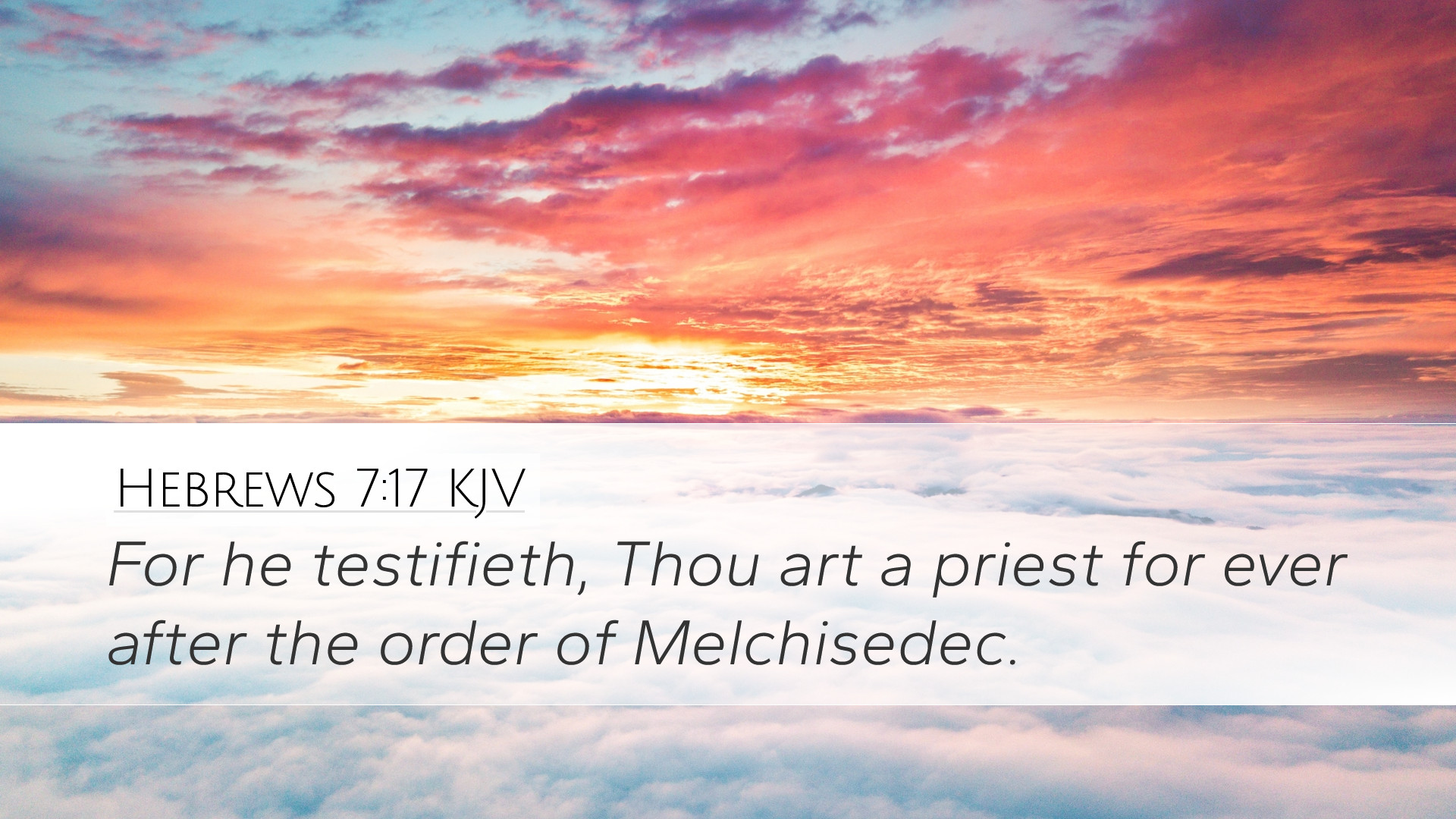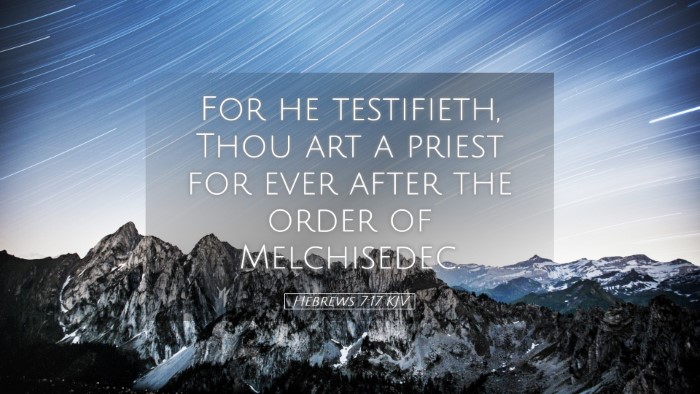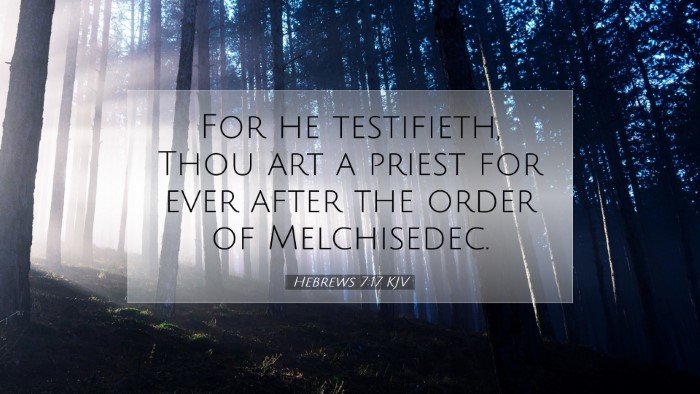Bible Commentary on Hebrews 7:17
Hebrews 7:17: "For he testifieth, Thou art a priest for ever after the order of Melchisedec."
Introduction
This verse serves as a pivotal statement in the epistle to the Hebrews, highlighting the significance of Melchisedec's priesthood. The author of Hebrews establishes a comparison between the Levitical priesthood and the priesthood of Christ, asserting the eternal nature of Jesus' priesthood through the order of Melchisedec.
The Significance of Melchisedec's Priesthood
Contextual Background: Melchisedec appears in Genesis 14:18-20 as the king of Salem and priest of the Most High God. He blesses Abram and receives tithes from him. This encounter is crucial as it introduces a priesthood that is not based on lineage or the law, but rather on an eternal covenant.
Insights from Public Domain Commentaries
-
Matthew Henry:
Henry emphasizes that Melchisedec is a type of Christ. His being both a king and a priest foreshadows the dual nature of Christ's roles in the New Covenant. For Henry, the permanence of Melchisedec's priesthood illustrates the unchanging and everlasting nature of Christ's ministry.
-
Albert Barnes:
Barnes notes that the testimony regarding Jesus as a priest forever after the order of Melchisedec highlights the insufficiency of the Levitical priesthood. He argues that Christ’s priesthood, being eternal and superior, fulfills the needs of the believers in a way that the former priesthood could not.
-
Adam Clarke:
Clarke expounds on the significance of the order of Melchisedec as being more than a historical figure; it represents a divine order established by God. His commentary elucidates how Christ, being of this order, bridges the gap between God and humanity, offering a perfect and complete sacrifice.
Theological Implications
The implications of Jesus’ priesthood being likened to Melchisedec are profound. It affirms several theological tenets:
-
Christ's Eternality:
As noted by all three commentators, the eternal nature of the priesthood signifies that Christ’s intercession on behalf of humanity is everlasting. This challenges the transient nature of the Levitical priests, who served until death.
-
Importance of Faith:
Hebrews reveals that through faith in Christ, believers can now approach God without the need for traditional rituals, thus reaffirming a personal relationship with the Divine.
-
The Legacy of Grace:
Christ’s priesthood under the order of Melchisedec illustrates the shift from law to grace, as it encompasses a new covenant that allows believers to live in the freedom and assurance of salvation.
Practical Applications for Believers
This theological foundation provides practical applications for contemporary believers:
-
Confidence in Christ:
Understanding that Christ is an eternal priest encourages believers to approach the throne of grace with confidence, knowing that their High Priest understands their struggles and mediates for them.
-
Empowered Living:
The acknowledgment of Christ’s role as a priest inspires believers to live a life of empowerment and holiness, reflecting the character of Christ in their daily lives.
-
Commitment to the Covenant:
Believers are called to examine their commitment to the new covenant established by Christ, realizing the implications of being part of a priestly nation that is meant to represent God's kingdom on earth.
Conclusion
Hebrews 7:17 encapsulates the essence of the transition from the old to the new covenant and reaffirms the security, grace, and hope that believers have in Christ. By understanding the significance of Jesus' priesthood in the order of Melchisedec, pastors, theologians, and students are encouraged to delve deeper into their faith and recognize the profound changes that accompany the new covenant.


